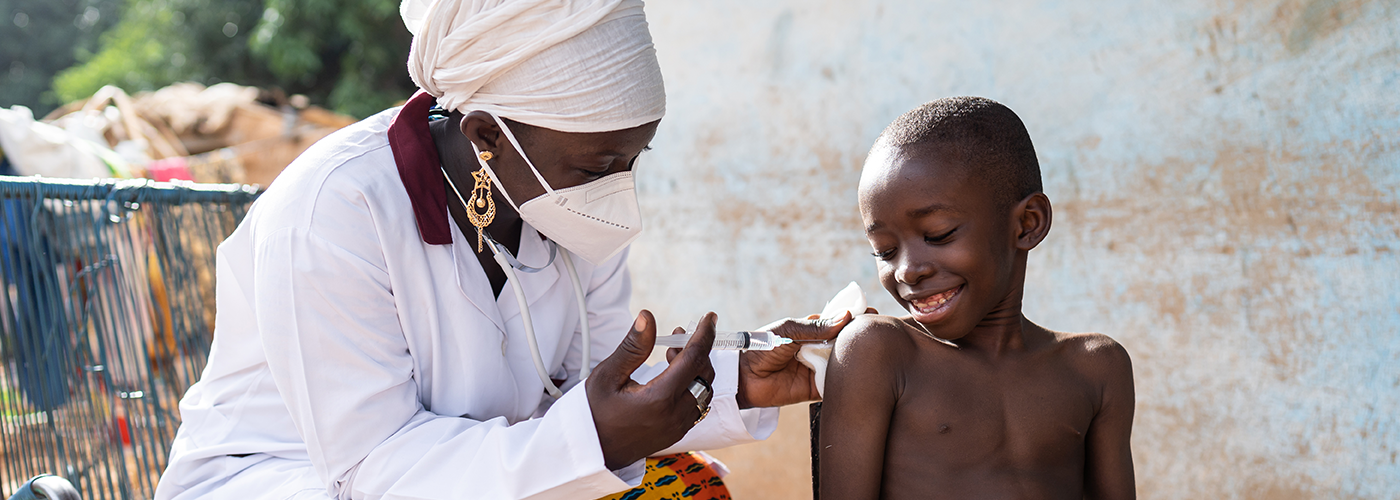The Future Vaccine Manufacturing Research (FVMR) Hub, led by Professor Robin Shattock, Chair in Mucosal Infection and Immunity at Imperial, has been awarded £10.5 million for 4.5 years in a new set of funding for vaccine hubs across the UK.
This work builds on the successes and existing partnerships from the first EPSRC FVMR Hub at Imperial, which was funded from 2018-2023.
Partnering with three other UK universities, two UK institutes, and eight companies, the FVMR Hub aims to increase immunisation coverage across the globe and improve the response to viral outbreaks through the rapid and cost-effective manufacturing and deployment of vaccines.
Initial novel manufacturing projects will be carried out in Vietnam, Bangladesh, and South Africa, expanding to other countries during the project.
“Through the establishment of the Future Vaccine Manufacturing Research Hub we are looking to exploit the next wave of biotechnology innovation to rapidly respond to emerging outbreaks and empower countries most at risk of infections to meet their local vaccine needs,” said Professor Shattock.
The team plans to innovate and ‘disrupt’ vaccine production by developing reliable technologies that low- and middle-income countries can adopt to produce vaccines cost-effectively, at scale and in compliance with regulatory requirements. Their aim is to develop reliable vaccine platforms that can be used to produce tailored vaccines within 100 days of an identified outbreak or threat.
They will create heat-stable vaccine formulations that minimise the need for low-temperature storage, and further develop four existing vaccine platforms, overcoming challenges including scalability, cost, and stability. The platforms include RNA, which formed the basis of several important COVID-19 vaccines, and platforms based on viruses, yeast, and bacterial membranes.
The FVMR Hub is led by Imperial College London and will work in partnership with the the Universities of Bristol, Kings College London, and Strathclyde, the CPI, and the and the Medicines and Healthcare products Regulatory Agency (MHRA). The Hub will also partner with GSK Vaccines Institute for Global Health, Cytiva, Centillion Ltd, Sartorius BIA Separations, and Fuji Film Diosynth Biotechnologies. Manufacturing research projects will be carried out with the following partners: Incepta, Bangladesh; and VABIOTECH, Vietnam; and BioVac, South Africa.
UK Vaccine Network Project
In total four vaccine hubs received a share of £33 million of UK aid funding via the Department of Health and Social Care (DHSC), and a further £1.5 million from the Engineering and Physical Sciences Research Council (EPSRC). The hubs will be part of the UK Vaccine Network (UKVN) Project, which aims to develop vaccines for diseases with epidemic potential in LMICs.
The hubs were announced by Minister for Health and Secondary Care Will Quince. He said: “I’m thrilled that the UK is building on its strong working relationship with global researchers by funding these innovative vaccine hubs, which will support partners across Africa and South East Asia to improve vaccine manufacturing capability.
“These innovative partnerships between British universities and vaccine developers – with £33 million of UK aid funding – will ensure vaccines are accessible to everyone in need, and allow us to future-proof health systems both here and abroad by accelerating the availability of new vaccines for future pandemics.”
